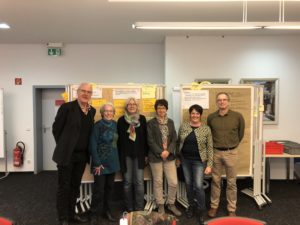Small farmers still constitute the majority of the population in the Global South and are disproportionately affected by poverty. While there is consensus that SDG 2 (Zero Hunger) and other development goals cannot be achieved without promoting small farmers, there are different and often controversial opinions about the best approaches to do so.

On 4 March 2020, the German Development Institute / Deutsches Institut für Entwicklungspolitik (DIE), in collaboration with “Netzwerk entwicklungspolitischer Fachleute” (a network of independent development professionals) carried out a non-public workshop which aimed at fostering exchange and dialogue among development agencies to eventually overcome stereotyped antagonisms on this important issue. Altogether 25 participants took part, representing 12 organisations (GOs, NGOs and private sector) active in this field, particularly members of the support group of the German Special Initiative “A World Without Hunger” (SEWOH), plus some freelance experts.
After an introduction by Michael Brüntrup of DIE, Professor Theo Rauch gave a keynote highlighting existing controversies but also areas of common ground with regard to four different dimensions: Integrated vs. product oriented approaches; ecological/low input vs. conventional/high input farming technologies; public vs. private service systems and regional vs. global food systems. In a next step, nine organisations presented their specific experiences, displaying a wide range of approaches, achievements, but also limitations.
The afternoon was dedicated to working groups which took up the first three dimensions sketched out in the keynote and discussed about pros and cons of each approach as well as potential combinations and open questions.
Participants in the final plenary session agreed that the topic was highly relevant and the workshop had been successful in showing the variety of approaches, fostering dialogue and inspiring new insights. Many supported the idea to continue exchange and collaboration.
For further readings on SDG2 please visit our web special: Food security and agriculture for a world without hunger.
Schreibe einen Kommentar